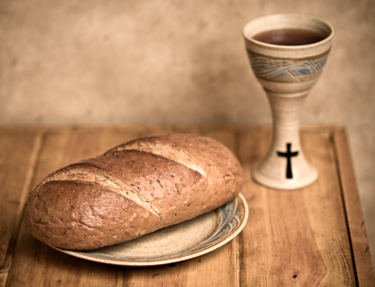There are many ways to approach the telling of the story of Scripture. Various themes can be traced out from beginning to end that help you understand God and his relationship with his people. One theme that is prominent from the beginning to the end of Scripture is the theme of marriage. The Scriptures begin in a Garden with the Father providing his son a bride. The last chapters of Scripture end in a Garden-City with the bride of the Son coming down out of heaven. Everything in between contributes to the development of this relationship. The whole story of Scripture can be told from the perspective that God’s purpose was to create a bride for his Son whom his Son would glorify through the gift of the Spirit.
This process of glorification for the bride takes a long and difficult road. The bride is not always faithful. Her betrothed must go to great trouble to deliver his bride in order to make her beautiful. One such place we see this is when the bride is in Egypt. God sent her down there to protect her and provide for her under Joseph. But eventually the bride started adopting the old ways of the Egyptians in whoring after her “husbands,” and YHWH gave them over to their oppression under Pharaoh. However, he delivered them. He brought them through the Sea and then to Sinai. At Sinai Israel became YHWH’s wife (cf. Jer 31.32; Ezek 16). YHWH entered a covenant with Israel. Their marriage was “under Law.”
Imagine the consternation of the Jews when Paul comes along and says, “You are no longer under Law.” This is tantamount to saying, “You Jews are no longer married to YHWH.” How can this be? Can YHWH forsake his covenant? Did he walk out on the marriage? If he did, how can he be trusted to be faithful? If he didn’t, then the gospel Paul is preaching is blasphemy.
There is an explanation. Marriage covenants are binding as long as the husband lives. But if the husband dies, then the wife is no longer bound “by the law of the husband” (Rom 7.2-3). The marriage died “through the body of Christ.” That is, when Christ died, the husband died. Yes, that means that Christ Jesus is YHWH who was married to Israel at Sinai. He died so that the bride could be released from this marriage that kept her “under Law.” This “under Law” stage of life wasn’t the complete glorification of the bride. It wasn’t good for the bride to remain in this position. In order to move on to greater glorification, her marriage bound by the Law of Moses had to die. The husband willingly gave his life so that the bride, and therefore the marriage, could move to another state of glory.
And it did. The husband didn’t forsake his bride. The one who died is also the one who is risen again so that Israel might be married to the resurrected Christ Jesus, sharing in his glory. That old marriage was always bound to end in death. Death is all that the old marriage could ultimately produce (Rom 7.5). That was its aim. It was a ministry of death (2Cor 3.7). It was a necessary death, but it was death nevertheless.
God’s intention for marriage was fruitful life. This could only be realized through death and resurrection into a new condition of marriage. Israel is now free to marry the resurrected Christ so that they might bear this fruit unto God. The marriage that Christ has now with his people is the marriage that God the Father intended for his Son all along.
This marriage is a mission, a mission to bear holy fruit. This holy fruit is produced by the Holy Spirit given to us and is evident in our relationships with one another as love, joy, peace, longsuffering, kindness, goodness, faithfulness, gentleness, and self-control. Where these are evident, the marriage is being fruitful.
But our holy fruit is not limited to what we might think of as attitudes toward one another (though the fruit of the Spirit is not limited to attitudes either). The fruit of our bodies whether through reproduction or labor is also included in this holy fruit. Our marriages are under the lordship of Jesus. Whatever comes from our marriages, including children, belong to Jesus. Our children are holy fruit (cf. e.g., 1Cor 7.14). The product of our labor throughout the week is holy fruit. All of it is for the continued glorification of the marriage of Jesus and the church; it is fruit that is produced that will be handed over to the Father so that he might enjoy it in communion with us (cf. 1Cor 15.20-28).
We have been called to cultivate this holy fruit. This is the purpose and promise of our relationship with Christ Jesus. Being united to the resurrected, never-to-die-again Christ, we labor with the confidence that our labor will be fruitful. It is not in vain (1Cor 15.58).
















